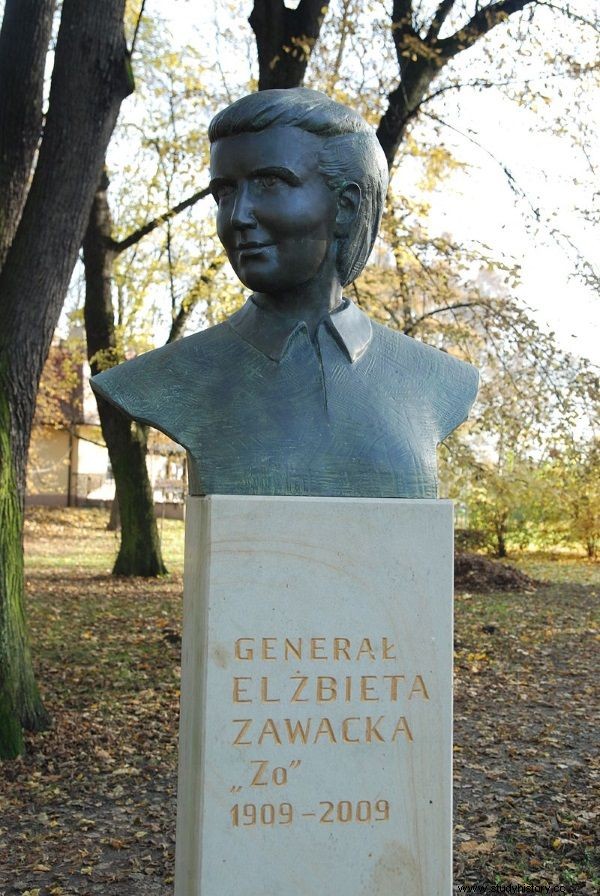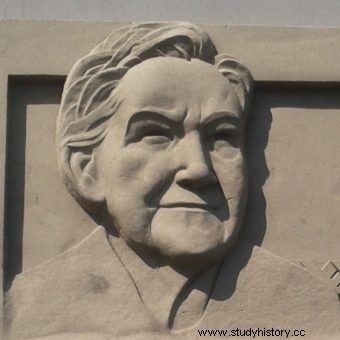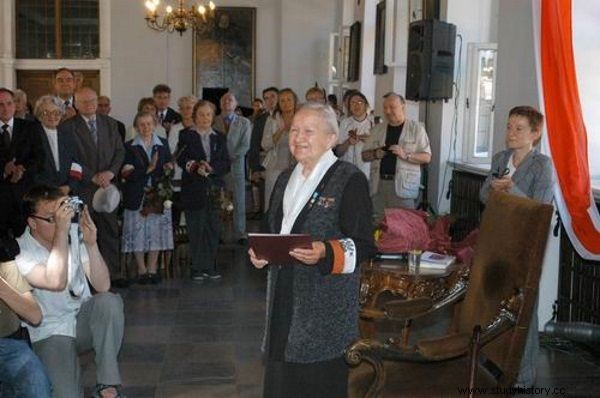Elżbieta Zawacka, ps. "Zo", "Zoya" was the only woman-cichociemna, that is, a soldier dropped by the Polish Armed Forces in the occupied country. This excellent secret agent daringly avoided arrest and courageously carried out conspiratorial tasks. Her biography, however, contains at least surprising threads ...
General Elżbieta Zawacka "Zo" was born as one of eight children of Marianna and Władysław Zawacki. The family first lived in Gdańsk, where my father worked in a shipyard, and then moved to Toruń, where he took a job as a court clerk. Despite the Polish-sounding name, Władysław was trusted by the authorities.
The man graduated from the Prussian NCO school, he had military service behind him. And although he was a Catholic - which was considered a dangerous symptom in the German partition - he nevertheless agreed with the applicable regulations by necessity. He also expected his relatives to adapt to the regime introduced by the Germans.
As one of the biographers of Elżbieta Zawacka emphasizes, the use of the Polish language was forbidden in the territory of the Prussian partition, which was carefully controlled. This was especially true of government officials. Not only was it checked whether they spoke the forbidden language at work and outside. Their children were also checked and questioned, for example, to make sure that they were praying in German. Even children who had breakfast wrapped in a Polish newspaper were punished in educational institutions!

The bust of General Elżbieta Zawacka in the Jordan Park in Kraków (photo:Skabiczewski, license CC BY-SA 4.0)
If the Zawacki were caught speaking Polish, Władysław would be fired immediately, which, as the head of a large family, he absolutely could not afford. In Elżbieta's house, only her father, mother and eldest sister spoke Polish, communicating in a whisper so that the younger children would not hear. The rest of the offspring were only taught German.
When Elżbieta Zawacka started her education, she went to a German school, where she did quite well (she even had a very good mark in German). For a long time, teaching centers were also places of intense Germanization, in which they were physically punished for using the Polish language. As a result, Elizabeth only grew up surrounded by German culture.
Polish or German?
After the end of World War I and the Greater Poland Uprising, the lands where the Zawacki lived were incorporated into Poland. Elżbieta only then began to learn Polish at all. In 1922, she entered the Municipal Girls' Gymnasium in Toruń, where, however, she had problems with learning a completely unknown language and with the history that she had been learning from a completely different perspective.
With time, she took up the second subject, but in the following years she still had only three in Polish. But that wasn't her only problem at school.

Part of the plaque "Most Generał Elżbieta Zawacka" on the bridge in Toruń (photo:public domain)
Many Germans left the lands attached to Poland, and people from other parts of the country came to replace them. For them, the rest of the inhabitants were simply "Germans" and that was what they called them. Children from the well-developed and relatively wealthy Toruń did not remain indebted, calling the new "bare feet".
In addition, there were political disputes among teenagers - young people from Pomerania, like their parents, expressed their support for the supporters of General Haller and his blue army (when he entered Toruń, they welcomed him with tears in their eyes), and the majority of visitors were Piłsudski. The newcomers did not understand the specificity of life and national issues in the former Prussian partition. Meanwhile, the vast majority of "Germans" came from Polish families that had been Germanized for decades.

General Elżbieta Zawacka in the Chancellery of the President (photo:Chancellery of the President of the Republic of Poland, license GFDL 1.2)
Also Elżbieta Zawacka, although for a long time she could not even introduce herself in Polish and count to ten, was Polish. Her grandfather, Karol, when he was mobilized to fight in the Franco-Prussian war, almost stood on his head to postpone his departure to Berlin as long as possible. By the time he got there, the war was over. Her oldest surviving brother Alfons (called Ali by his relatives) fought in the Greater Poland Uprising and later became an officer in the Polish army. Poor understanding of the language did not prevent him from choosing the right side of the fight.
Elżbieta Zawacka herself, who started working as a teacher after graduation, constantly proved that she felt Polish. She became involved early in Women's Military Training, taking his ideas deeply to heart. After the outbreak of the war, she fought in the Women's Battalion of Auxiliary Military Service in defense of Lviv. Paradoxically, the years of Germanization were also useful to her - while serving in the Home Army, she crossed the border of the Reich many times, which was significantly facilitated by her "Aryan" appearance and perfect knowledge of the German language. But her intelligence career is a topic for a separate article.
